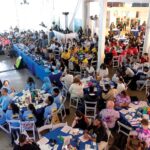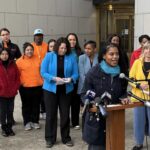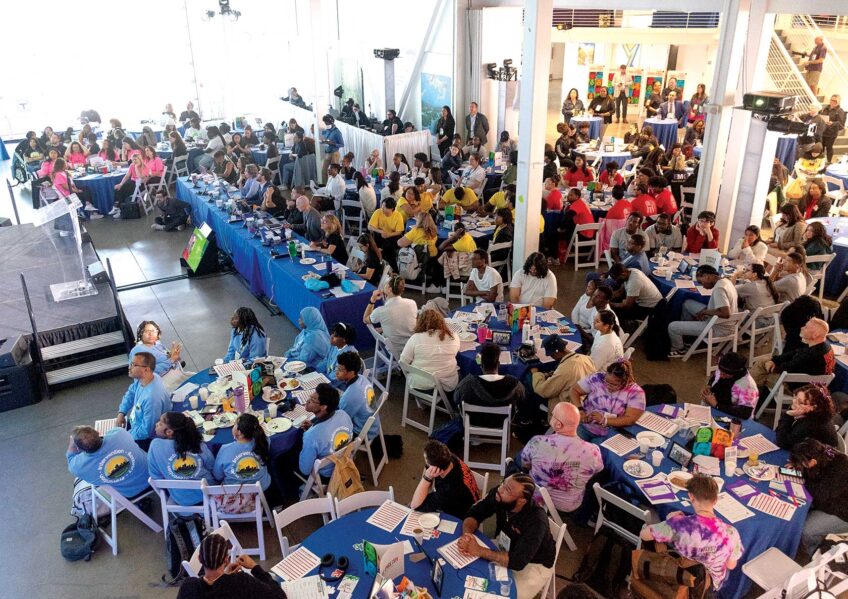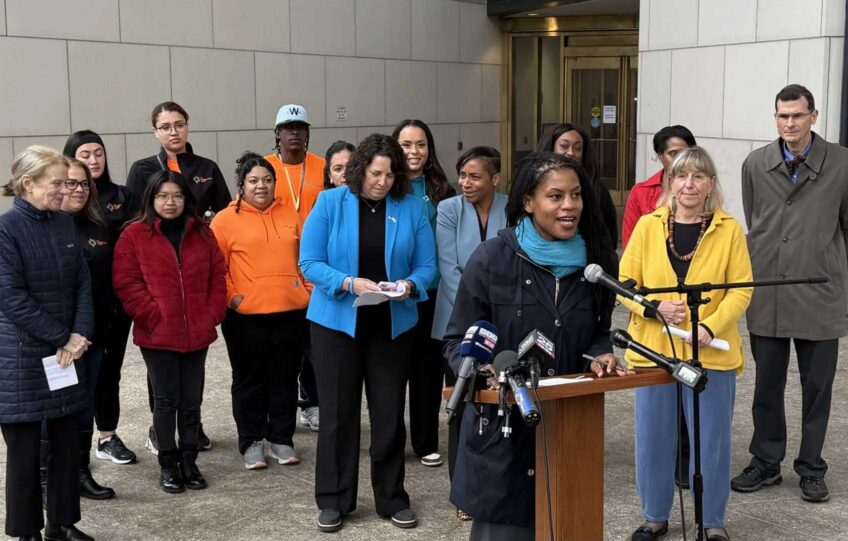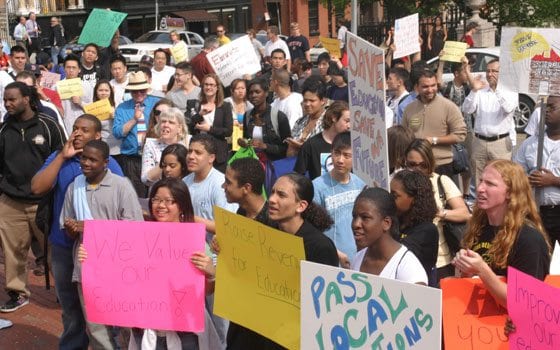
More than 200 Boston Public Schools (BPS) students converged on the State House last week in a rally that capped a five-month struggle for more school funding.
The students, who gathered as the state Senate was debating the state’s fiscal year 2010 budget, called on the Legislature to rescind cuts to youth programming and increase allocations for education.
They also asked that legislators approve local options taxes that would give municipalities the power to levy taxes on hotels and restaurants as an additional fundraising source.
“We attend school in one of the largest and one of the poorest districts in the state, and we need as many new sources of money as possible,” said William Poff-Webster, a junior at Boston Latin School.
The students’ call for more revenue comes as the Legislature and Gov. Deval Patrick grapple with what has grown into a $5 billion budget deficit. State revenues are down, hit by the recession and undermined by years of tax cuts that seemed prudent during boom times but appear devastating in the current fiscal climate.
Boston school department officials are preparing to lay off 536 employees, including 134 teachers. Programs are being cut in schools, and funding for after-school programs and summer jobs has been slashed as well.
Chanel Woodbury-Wilson, a student at Monument High, part of the South Boston Education Complex, said she was motivated to rally because one of her favorite teachers is slated to be laid off.
“Her teaching methods make the class fun,” the Dorchester resident said.
Woodbury-Wilson noted that field trips and activities would likely be cut out of the school budget if Boston loses more revenue.
Cities and towns in Massachusetts raise revenue primarily through property taxes, which have remained stable during the current fiscal crisis. But like most large cities, Boston receives a large portion — about 25 percent — of its budget from the state.
While the Legislature and the governor are debating how to bridge the $5 billion deficit gap through budget cuts and tax increases, many Massachusetts mayors are asking for the power to tax local hotels, restaurants and parking facilities.
Boston could raise as much as $86 million a year through hotel parking and meals taxes, which could go a long way toward closing the BPS’s expected $150 million budget gap.
“The Senate did put out a bill on local options last night,” Boston Latin junior Maya Jonas Silver noted at last Wednesday’s rally. “But, of course, the House hasn’t voted that yet. So that’s something we’re totally focused on.”
The student coalition began its advocacy in January, when the school department announced its budget cuts along with cost-saving measures that included school closures and a new student assignment plan that would create smaller school zones.
The student organizations began banding together to challenge the cuts proposed by the Boston School Committee. After meetings with the committee, the students shifted their focus to the Legislature.
The students in the coalition are mostly members of youth groups, including the Boston Youth Organizing Project, Sociedad Latina, the Hyde Square Task Force, Boston Mobilization and the Student Alliance for the Future of Education.
“When it’s time for us to come together, we really come together,” said Ashley Cotton, a community organizer with the Hyde Square Task Force. “This is an instant where everybody’s on the same page. It would be a shame if all the money gets taken away, with all that’s going on in our community.”



